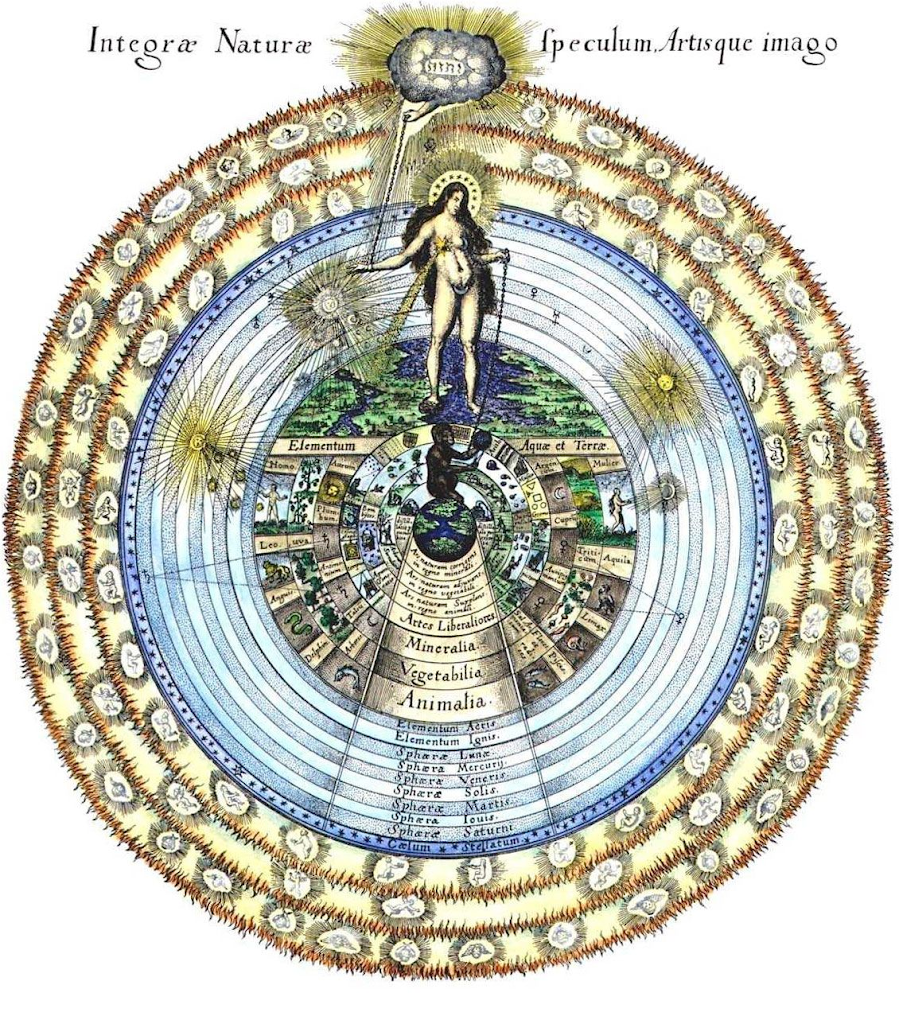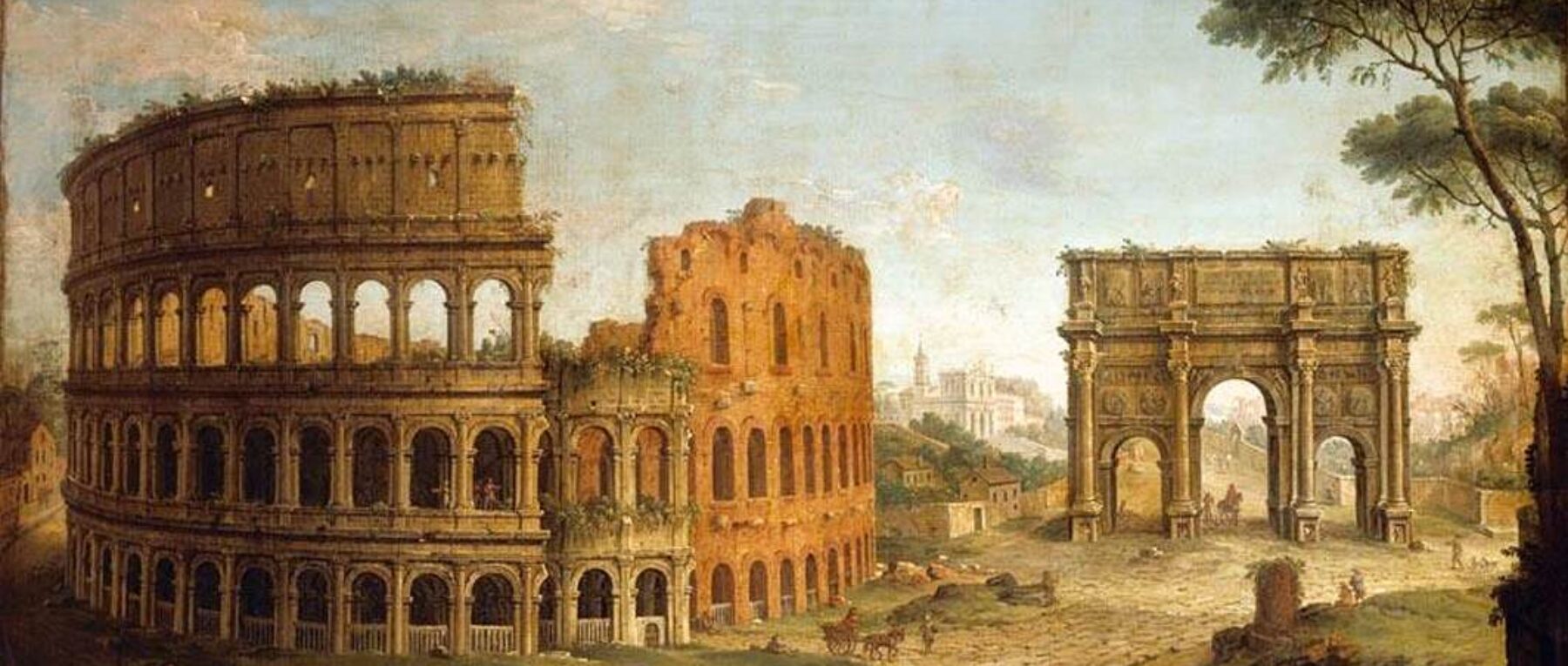
The Anima Mundi: Does The World Have A Soul?
In the 21st century, the dominant view of the world and universe is that it is a lifeless material object, devoid of intelligence or consciousness. This view of the world and universe conceives of it as a sort of giant clock or machine that is made up of separate parts, which move about and collide with one another.
This mechanistic and reductionist view of the world began during the Enlightenment in the 17th century and gained steam in the 19th century. Though still dominant, it is a recent one in terms of world history. In the pre-modern and ancient world, another view predominated. It held that the world was an intelligent and living organism, of which human beings and living things were an integral and essential part.
It was known as the Anima Mundi or World Soul.
Origins and History

This idea was held by many of the early Greek philosophers and one of its earliest attested appearances is in Plato’s dialogue, Timaeus. There, Plato describes the creation and beginning of the world and describes it as having a soul and intelligence.
“And so the most likely account must say that this world came to be in very truth, through god’s providence, a living being with soul and intelligence.”
Plato, Timaeus, p. 43
This idea of the World Soul continued to be powerful in the succeeding centuries and was held by Stoic philosophers throughout the Hellenistic and Roman periods, including figures such as Marcus Aurelius. For the Stoics, the ‘World Soul’ “is the physical and rational principle of order and generation in the world (Cicero, De natura deorum 2.7.19), sustained as it is by a force (vis ) that they call animum mundi and identify with God.”1

In Late Antiquity, Neoplatonist philosophers like Plotinus, synthesising the ideas of Plato and Aristotle, conceived of the World Soul as one of the three principles of his metaphysics which constituted a bridge between the material realm and the Nous (Divine Mind). This metaphysics was later picked up by the early Greek Church Fathers who usually equated the Holy Spirit with the ‘World Soul’.2
The idea waxed and waned in popularity in the Middle Ages before a revival in the Renaissance with key thinkers such as Marsilio Facino, Paracelsus and Robert Fludd (see picture at the top). Later during the Enlightenment, the World Soul gained some recognition amongst groups such as the Cambridge Neoplatonist’s.
In the Romanticism of the late 18th and early 19th century, the ‘spirit of nature’ – Geist Der Natur (in German) was a recurrent and prominent theme in the art and literature of the time, as seen in F.W.J Schelling and G.W.F Hegel.
Quantum Physics and a New Paradigm

In more recent times, new discoveries in physics in the 20th century have challenged the dominant notions of the materialist paradigm. The discoveries in quantum mechanics and quantum theory appear to point to the idea of the world as an interrelated whole that is not mere ‘solid matter’. This is well described by the renowned physicist David Bohm:
“…the world cannot be analysed correctly into distinct parts; instead, it must be regarded as an indivisible unit in which separate parts appear as valid approximations only in the classical [i.e. Newtonian] limit….Thus, at the quantum level of accuracy, an object does not have any “intrinsic” properties (for instance, wave or particle) belonging to itself alone; instead, it shares all its properties mutually and indivisibly with the systems with which it interacts.”
David Bohm, Quantum Theory. Prentice-Hall, New Jersey, 1958. pp. 161-162.
In other words, the world is a whole in which everything is related and a part of everything else. It’s like a giant web in which each strand is integral to the whole of the web. Nothing is separate and unrelated.
Panpsychism and the Nature of Consciousness
The re-emergence in recent years of Panpsychism (from the Greek Pan/All and Psyche Mind/Soul) in contemporary scientific and philosophical debate also points to the idea of a ‘World Soul’. The basic idea is that there is a mind or consciousness that is fundamental to the world and/or Nature.
This idea is present in the oldest living cultures around the world and is commonly referred to as animism. Animism considers the world to be a vital and alive place, animated by a spirit or mind that is present in everything from trees and rocks, to animals and humans.
This notion of a World Soul and the implication that consciousness extends beyond the human brain into the world outside ourselves, changes our relationship to that world. Rather than seeing ourselves and other creatures as separate and unconnected parts in a giant machine clock, cut off and without purpose – we see ourselves as integral strands in an interconnected and living web.
A World Soul.
“Think always of the universe as one living creature, comprising one substance and one soul: how all is absorbed into this one consciousness; how a single impulse governs all its actions; how all things collaborate in all that happens; the very web and mesh of it all.”
The Meditations, Aurelius, Bk4, p. 31
Sources:
https://www.britannica.com/topic/World-Soul
Aurelius, M (2006), Meditations. Translated by M. Hammond. Introduction by Diskin Clay. London: UK. Penguin Books
https://www.merriam-webster.com/dictionary/anima%20mundi
https://en.wikipedia.org/wiki/Panpsychism
Plato. Plato in Twelve Volumes, Vol. 9 translated by W.R.M. Lamb. Cambridge, MA, Harvard University Press; London, William Heinemann Ltd. 1925.
Link: http://www.perseus.tufts.edu/hopper/text?doc=Perseus%3Atext%3A1999.01.0180%3Atext%3DTim.%3Asection%3D30b

